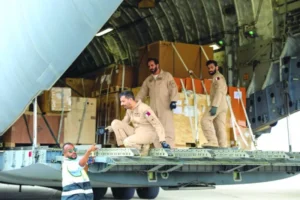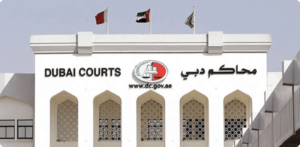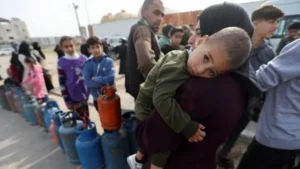Iran strengthens ties with Iraq, Kurdistan to subdue Kurdish opposition
Iran has successfully worked with leaders in Baghdad and Iraqi Kurdistan to subdue Iranian Kurdish opposition groups, which Tehran accuses of staging cross-border attacks and fuelling unrest, including protests following the death of Mahsa Amini in 2022.

Iran has successfully worked with leaders in Baghdad and Iraqi Kurdistan to subdue Iranian Kurdish opposition groups, which Tehran accuses of staging cross-border attacks and fuelling unrest, including protests following the death of Mahsa Amini in 2022.
Iran has long viewed Kurdish opposition groups, primarily composed of exiled Iranian Kurds, as a destabilizing force. While these groups have operated from Iraq for decades, especially following the 1979 establishment of the Islamic Republic, experts argue that they have never posed a serious threat to Iran’s stability. Adel Bakawan, director of the French Research Centre on Iraq, emphasized this point, stating, “They did pose a threat, but not a serious threat, not a strategic threat, not an existential threat.”
However, tensions escalated in recent years with Iran conducting repeated strikes against Kurdish militants in northern Iraq. In response, Iraq signed a security agreement with Tehran in March 2023, marking a turning point. Since then, Baghdad has disarmed Kurdish opposition groups and relocated them from the sensitive border regions to camps deeper within Iraqi territory. Iraqi Prime Minister Mohamed Shia Al-Sudani called the neutralization of these groups a “success,” emphasizing Iraq’s commitment to preventing aggression against Iran from its soil.
This newfound cooperation extends to Iraqi Kurdistan’s regional leadership, long considered allies of the United States. In a reflection of shifting allegiances, Kurdistan’s President Nechirvan Barzani and Prime Minister Masrour Barzani have worked to restore ties with Tehran. This was symbolized by their attendance at the funeral of Iranian President Ebrahim Raisi following his death in a helicopter crash earlier this year. His successor, Masoud Pezeshkian, made his first foreign visit to Erbil on Thursday, marking a historic moment in relations between Tehran and Iraqi Kurdistan.
“We have good relations with Kurdistan, and we are working on further improving them,” Pezeshkian told regional broadcaster Rudaw in a symbolic gesture of goodwill.
As Iran consolidates its influence over Kurdish opposition and strengthens diplomatic ties with both Baghdad and Erbil, Kurdish opposition groups face an uncertain future. Iraq’s national security chief Qassem al-Araji confirmed the closure of 77 opposition bases near the Iranian border and outlined plans to transfer members of these groups to third countries, signaling the diminishing influence of Kurdish separatists in the region.
For many observers, these developments point to a larger geopolitical shift. With the United States reducing its footprint in the Middle East, regional players like Iran are filling the void, shaping the future of Iraq and Kurdistan through security agreements and diplomatic overtures.








